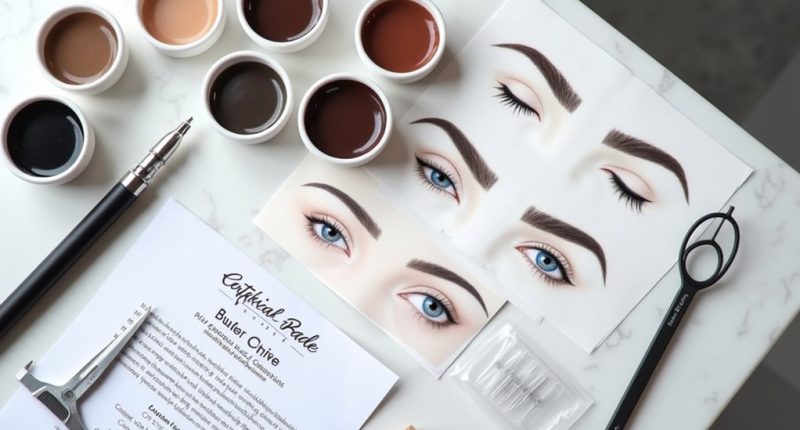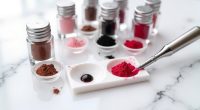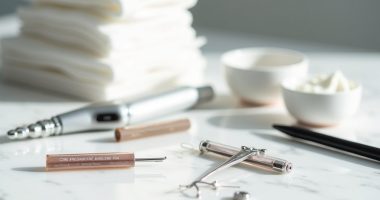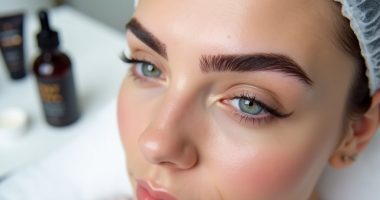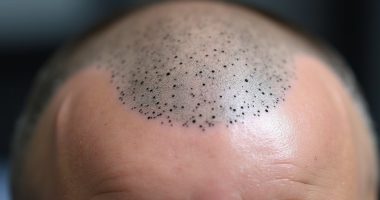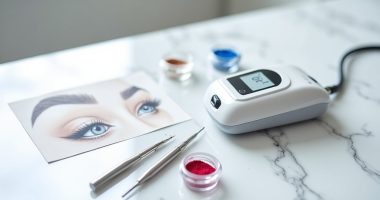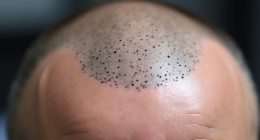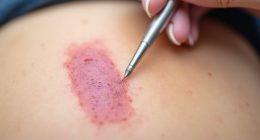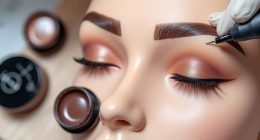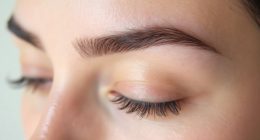Permanent makeup training varies widely in quality and requirements. Programs range from quick weekend courses to extensive 375-hour certifications, costing between $3,500-$10,000. No cosmetology license needed in many states, but Bloodborne Pathogen Training is mandatory. Good programs feature hands-on experience with real models, not just synthetic skin. Specializations include microblading, powder brows, and medical applications like scar camouflage. The industry rewards those who invest in accredited education and portfolio development.
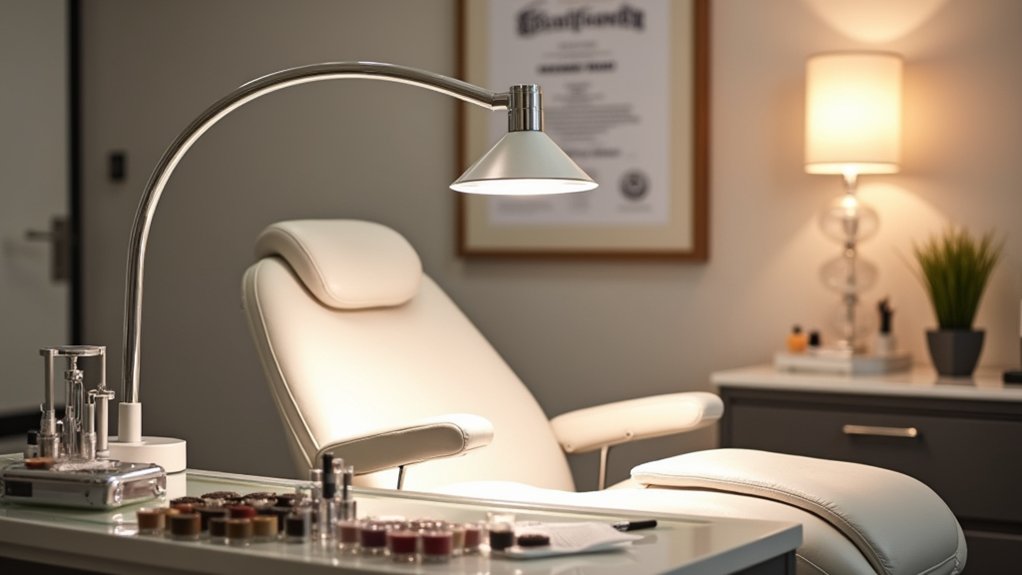
While the beauty industry continues to evolve at breakneck speed, permanent makeup artistry has emerged as one of its most lucrative and in-demand specializations. Aspiring artists often assume they need a cosmetology license to begin. They don't. Many states don't require traditional beauty credentials at all, though they do insist on Bloodborne Pathogen Training—because nobody wants an infection from their fancy new eyebrows. A tattoo license is frequently mandatory too. Makes sense. You're literally tattooing someone's face.
Certification programs vary wildly in quality and recognition. The good ones provide hands-on experience with real models, not just practice skin. Nothing beats working on actual human faces with their unique textures, tones, and terrified expressions. Some programs are shockingly brief—just a day or three—while thorough training can span several months with 100-375 hours of instruction. Researching reputable training providers with qualified instructors is essential for proper preparation before booking any course. The National Permanent Makeup Academy offers a condensed yet comprehensive 200-hour program that covers all essential techniques. An apprenticeship might demand over 1,000 hours. That's a lot of brows.
Quality training means real faces, not synthetic skin. The difference between a 3-day course and a 1,000-hour apprenticeship shows in every eyebrow.
The financial investment isn't small. Basic courses start around $500-$900 per day, with full programs ranging from $3,500 to $7,500. Advanced specializations? Those can hit $10,000. And don't forget about supplies. Those tiny needles add up.
Training formats have diversified, offering in-person classes, online theoretical components, or hybrid models. Some artists prefer one-on-one mentorship. Others thrive in workshop environments where they can witness twenty different ways to mess up a lip line. Accredited programs are worth the investment as they ensure comprehensive coverage of safety protocols and enhance your professional credibility in the industry.
Specialization is key in this field. Microblading, powder brows, eyeliner, lash enhancement, lip blush—the options are endless and increasingly technical. Medical applications like scar camouflage and areola restoration represent growing niches with profound impact on clients' lives. Scalp micropigmentation helps those with hair loss. These aren't just beauty services; they're confidence restorers.
After training comes the bureaucracy. Licensing requirements vary dramatically by state. Some barely regulate the industry while others demand extensive documentation, permits, and inspections. Health department requirements must be met. A portfolio becomes essential for attracting clients or employment.
The learning never stops either. Techniques evolve constantly, with new tools and methods appearing yearly. The path to becoming a permanent makeup artist isn't straight or simple. But for those willing to invest the time, money, and effort, it offers creative fulfillment and genuine transformation of clients' self-image. Not many careers let you literally draw happiness onto someone's face.
Frequently Asked Questions
How Much Does Permanent Makeup Training Typically Cost?
Permanent makeup training expenses vary widely.
Basic programs run $2,500 to $4,500. Want extensive training? That'll cost you up to $10,000. No joke.
Online options are cheaper ($39.99 to $1,500), but you get what you pay for.
Private training? Prepare to shell out $2,400-$3,000 per day.
Don't forget certification fees and extra costs—starter kits ($750-$1,000), licensing ($100-$300), insurance, and continuing education.
The beauty industry isn't cheap, folks.
Can I Learn Permanent Makeup Techniques Online or Virtually?
Yes, online learning for permanent makeup is definitely a thing. Artists can access theory, techniques, and video demonstrations virtually. Pretty convenient.
But let's be real—it has limitations. Virtual workshops can't fully replicate working on actual skin. The feel, the depth—totally different.
Most professionals combine online courses with hands-on training eventually. Smart move. Some states won't even recognize online-only education for licensing.
Theory online, practice in person. That's the winning combo.
What Prior Experience Is Needed for Permanent Makeup Certification?
No formal prerequisites needed, but certain skills matter. Most states don't require cosmetology licenses—just a high school diploma.
Artistic background definitely helps though. Drawing skills? Useful. Color theory? Even better.
Requirements vary wildly by location. Some states demand tattoo licenses, others just want bloodborne pathogen training.
The practical skills are what count most. Steady hands and attention to detail aren't exactly optional when you're tattooing someone's face. Makes sense, right?
How Long Does It Take to Become Fully Certified?
Becoming fully certified in permanent makeup isn't a quick weekend adventure.
The certification process varies wildly – anywhere from 40 hours to 2 whole years. Most experts recommend at least 100 hours of training duration.
Some folks zip through 3-4 day crash courses (dropping $500-900 per day, ouch). Others commit to 6-8 month apprenticeships.
State requirements differ tremendously. Prior beauty experience helps speed things up.
The real kicker? Proficiency takes 6-12 months of actual practice after certification.
Are There Specific Health Requirements for Permanent Makeup Artists?
Yes, there are specific health requirements.
Permanent makeup artists must meet strict hygiene standards and health regulations. No getting around it. They need bloodborne pathogens certification, OSHA compliance, and often hepatitis B vaccination.
TB testing might be mandatory depending on location. Artists should disclose allergies to pigments or anesthetics.
Physical stamina matters too—try hunching over someone's face for hours!
Hand washing protocols? Non-negotiable. Cross-contamination prevention? Absolutely essential.
The industry doesn't mess around with health risks.
